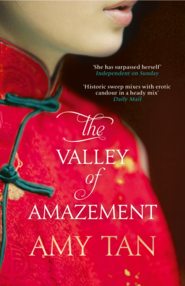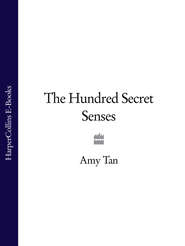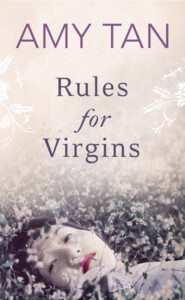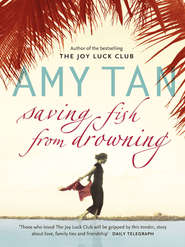По всем вопросам обращайтесь на: info@litportal.ru
(©) 2003-2024.
✖
The Opposite of Fate
Настройки чтения
Размер шрифта
Высота строк
Поля
TO COMPLAIN IS AMERICAN (#litres_trial_promo)
THE OPPOSITE OF FATE (#litres_trial_promo)
Footnotes (#litres_trial_promo)
Gratitude (#litres_trial_promo)
Praise for The Opposite of Fate (#litres_trial_promo)
About the Author (#litres_trial_promo)
By the Same Author (#litres_trial_promo)
Copyright (#litres_trial_promo)
About the Publisher (#litres_trial_promo)
A NOTE TO THE READER (#ulink_3f452f9b-c19a-5231-9945-99d174477274)
These are musings on my life, including the metaphors I used as an eight-year-old child, sensing books as windows opening and illuminating my room, and the thoughts I had as I wrote my mother’s obituary, trying to sum up who she was and what legacy she had bequeathed to me.
I call this a book of musings because the writings are mostly casual pieces rather than formal essays. Some are long, versions of conversational talks I gave at universities. Others are short, particular to the desperate hour in which I wrote them, for example, the eulogy for my editor, the incomparable Faith Sale; or the e-mail sent to friends after an unexpected disaster resulting in my near-demise made the national news. There is also a love poem to my husband, which counts as my most difficult exercise in brevity.
I have included such longer pieces as my ruminations about the making of the film The Joy Luck Club. A reporter had faxed me questions, and I sent back the answers, written off the top of my head, ending with my wondering what would happen next; in a footnote, I explain what did. I offer as well a portion of my journal entries from a 1990 trip to China in which I was smothered in the bosom of family and had to acquiesce rather than follow my typical American ways. I offer it here for fun, and because it shows how nearly everything in my life turns into obsessive observation, images, questions, and if I am lucky, the beginnings of stories, however ragtag they may be. The last reflection in this book was written only recently, and for a fateful but hopeful reason.
Some of the pieces have ignominious origins. “Mother Tongue” was written hastily, as an apologia the night before I was to be on a panel with people far more erudite than I on the topic “The State of the English Language.” The speech was later published in The Threepenny Review and then selected for inclusion in the anthology The Best American Essays 1991—leading me to wonder whether all my essays should be written at two in the morning in a state of panic. A version of “Mother Tongue” has also been used for the Advanced Placement SAT in English; this unanticipated development delights this author to no end, since her score in the 400s on the verbal section of the SAT made it seem unlikely, at least in 1969, that she would even think of making her living by the artful arrangement of words.
In gathering these pieces for the book, I made a new realization, so obvious that I was stunned I had not seen the pattern a hundred times before. In all of my writings, both fiction and nonfiction, directly or obliquely but always obsessively, I return to questions of fate and its alternatives. I saw that these musings about fate express my idiosyncratic and evolving philosophy, and this in turn is my “voice,” the one that determines the kinds of stories I want to tell, the characters I choose, the details I decide are relevant. In my fictional stories, I have chosen characters who question what they should believe at different moments in their lives, often in times of loss. And while I never intended for the pieces in this current nonfiction book to explain my fiction, they do.
Thus, although each of these writings came about for its own reasons, collectively they hold much in common, and at times they overlap in my mention of ideas, people, and pivotal moments. They are musings linked by my fascination with fate, both blind and blessed, and its many alternatives: choice, chance, luck, faith, forgiveness, forgetting, freedom of expression, the pursuit of happiness, the balm of love, a sturdy attitude, a strong will, a bevy of good-luck charms, adherence to rituals, appeasement through prayer, trolling for miracles, a plea to others to throw a lifeline, and the generous provision of that by strangers and loved ones.
I see that these permutations of changing fate are really one all-encompassing thing: hope. Hope has always allowed for all things. Hope has always been there. My mother, who taught me the many permutations of fate, was hope’s most stubborn defender. If fate was the minute hand on a clock, mindlessly moving forward, she could find a way to force it to go back. She did it often. She, who adamantly believed I would grow up to be a doctor, would later brag to anyone who listened, “I always know she be writer one day.” And in so saying, fate was changed and hope was fulfilled. And here I am, a writer, just as she predicted.
FATE AND FAITH (#ulink_ff34c7c1-4b08-59df-ae33-c0246fa51eda)
My mother believed in God’s will for many years. It was as if she had turned on a celestial faucet and goodness kept pouring out. She said it was faith that kept all these good things coming our way, only I thought she said “fate” because she couldn’t pronounce that “th” sound in “faith.”
And later, I discovered that maybe it was fate all along, that faith was just an illusion that somehow you’re in control. I found out the most I could have was hope, and with that I was not denying any possibility, good or bad. I was just saying, If there is a choice, dear God or whatever you are, here’s where the odds should be placed.
• The Joy Luck Club
THE CLIFFSNOTES VERSION OF MY LIFE (#ulink_a294221c-f172-556c-a173-383fdd550fe9)
Soon after my first book was published, I found myself often confronted with the subject of my mortality. I remember being asked by a young woman what I did for a living. “I’m an author,” I said with proud new authority.
“A contemporary author?” she wanted to know.
And being newly published at the time, I had to think for a moment before I realized that if I were not contemporary I would be the alternative, which is, of course, dead.
Since then I have preferred to call myself a writer. A writer writes—she writes in the present progressive tense. Whereas an author, unless she is clearly said to be “contemporary,” is in the past tense, someone who once wrote, someone who no longer has to sharpen her pencil, so to speak. To me, the word author is as chilling as rigor mortis, and I shudder when I hear myself introduced as such when I lecture at universities. This is probably due to the fact that when I was an English major at a university, all the authors I read were, sad to say, not contemporary.
What compels ardent readers of my work to ask me questions concerning my time-limited authorhood? In lecture halls and on live radio shows, I have been stunned by questions as deadly as these: “What would you like written on your tombstone?” “Which book would you like people to remember you by?” “Does it make you feel honored that your books probably will be in circulation at the library long after you’re gone?”
I don’t find those questions nearly as appalling as this one: “Are you loaded?” which is what a nine-year-old girl in Nashville once asked me at a book signing. I wondered whether the child might have just come from a school program on crime prevention or substance abuse and was now worried that all adults carried loaded weapons or were loaded on drugs. I said to her gently, “What kind of loaded are you worried about?”
“You know,” the girl snapped, “loaded like filthy rich.” I glanced over to her mother, expecting that she would reprimand her daughter. And the mother looked right at me and said, “Well, are you?”
I’ve grown accustomed to public scrutiny. Yet nothing prepared me for what I consider the ultimate reminder of an author’s mortality. It happened when I was at yet another bookstore, about to give yet another reading. I was waiting in the wings, as the store manager delivered a long introduction on my credentials as an author. Glancing to my side, I saw a wire book rack crammed with cheap and familiar booklets. They were CliffsNotes, self-proclaimed as “your key to the classics.”
As we all know, CliffsNotes have served as the midnight salvation of many a literature student, and if the sad truth be known, this former honors English major used them to write incisive papers on—dare I say it?—Ulysses, Lord Jim, and Hamlet.
Imagine: There I was, in a bookstore, recalling these past sins, about to read from my own published work. I gave a silent apology to my fellow authors Jim Joyce, Joe Conrad, and Bill Shakespeare, may they rest in peace. And then my eyes landed on another familiar title: The Joy Luck Club. I stared at those CliffsNotes, thinking to myself, But I’m not dead yet.
I flipped through the pages and found an obituary-like biography of the author, me, Amy Tan. I was shocked to learn that I once had carried on “a relationship with an older German man, who had close contacts with drug dealers and organized crime.”
Could this possibly be describing my Franz? True, he was older than I was, twenty-two years to my sixteen when we met. And yes, he was friends with a couple of Canadian hippies who sold hashish, but I don’t remember them being that organized about it. Whatever the case, does my personal history of having once dated a loser constitute the sort of information needed by “serious students,” as Cliff refers to them? Will this make them “secure in the knowledge that they have a basic understanding of the work”?
In page after chilling page, I saw that my book had been hacked apart, autopsied, and permanently embalmed into chapter-by-chapter blow-by-blows: plot summaries, genealogy charts, and—ai-ya!—even Chinese horoscopes. Further in, I was impressed to learn of all the clever nuances I’d apparently embedded into the phrase “invisible strength,” which is what a mother in the book taught her chess-playing daughter, Waverly. According to Cliff, I meant for “invisible strength” to refer to the “human will,” as well as to represent “female power” and “the power of foreigners.” It was amazing what I had accomplished.
The truth is, I borrowed that phrase from my mother, who used to say something like it to me whenever I was whining out loud. She’d say, “Fang pi bu-cho, cho pi bu-fang,” which is commonly uttered by Chinese parents, and which translates approximately to: “There’s more power in silence.”
What my mother intended that I understand, however, was precisely this: “No one wants to hear you make a big stink over nothing, so shut up.” The strict linguist might want to note that the literal translation of that Chinese phrase runs along these noble lines: “Loud farts don’t smell, the really smelly ones are deadly silent.”
Anyway, that’s the sort of literary symbolism I use with phrases like “invisible strength”—not the sort of analysis you find in CliffsNotes, I might add.
At the end of the booklet was a list of questions. I read one: “Which daughter in the book is most like Amy Tan? Why?” What luck. This very question was often asked of me in interviews, and I had never known what to say. Here in my quaking hands, just one page turn away, was the definitive answer. But one page later, I discovered these were just discussion questions, no answers were given, and thus I was left to ponder my existential angst in the usual fashion.
In spite of my initial shock, I admit that I am perversely honored to be in CliffsNotes. Look at me: I’m sitting in the $4.95 bookstore bleachers along with Shakespeare, Conrad, and Joyce. Now, I’m not saying that I’ve reached their same literary status. I acknowledge there is a fundamental difference that separates us. I am a contemporary author and they are not. And since I’m not dead yet, I can talk back.
One of the problems of being a contemporary author is that you are confronted with frequent opportunities to see what people have written about you in the way of reviews, profiles, or student theses. It’s all rather appalling. Good, bad, or ugly, there before your very eyes is an analysis of you, your intentions, and the deeper, more subterranean meanings of your books—say, the dichotomy between two cultures and two generations, or the sociopolitical concerns of immigration and assimilation—the subject matter that makes you sound high-minded when, really, your reasons for writing were more haphazard and personal.
The truth is, when I write, I begin with a simple question: How do things happen? Early in life, what I thought about that affected what I should hope. And in my family, there were two pillars of beliefs: Christian faith on my father’s side, Chinese fate on my mother’s. Picture these two ideologies as you might the goalposts of a soccer field, faith at one end, fate at the other, and me running between them trying to duck whatever dangerous missile had been launched in the air.
My father’s faith had been nurtured by his family. He was born in 1913, the oldest of twelve children, to a mother who was a Chinese traditional healer and a father who was a Presbyterian minister. My grandfather Hugh Tan had been converted by missionaries in Canton and educated in their English-speaking schools. His education was so thoroughly Western that he could read and write English before he could his native tongue of Cantonese. He wrote me a letter once, shortly before he died of a stroke in Shanghai. His English was impeccable, and he prefaced his remarks with Christian feeling: “We thank the good Lord we are still in good health.”
The Christian influence ran so deep and strong in the Tan family that all twelve children became evangelists of one sort or another. My father was a latecomer to the ministry, but at the age of thirty-four, he suffered a crisis of morals. A few years earlier, he had fallen in love with a beautiful woman who was unhappily married and had three young children. They started an affair, which led to the woman’s being thrown in jail for adultery. Shortly afterward, my father left China for the United States, where he had been offered a scholarship to study at MIT.
Upon arriving in San Francisco, he lived at a YMCA and joined the First Chinese Baptist Church on Waverly Street. At night, he wrote in a black leather diary, and sometimes he pondered his sins and weaknesses. He and the woman had committed adultery. Now the woman was being punished in jail, while he was in San Francisco taking square-dancing lessons. Oh, the terrible inequity of it all. He berated himself until God answered with an epiphany that he should devote himself to saving others. He gave up his scholarship to MIT, and joined the ministry by enrolling in the Berkeley Baptist Divinity School.
For the rest of his life, my father would place his faith in God to provide the right answers. His faith was absolute. Among most people I know, a bit of wiggle room is expected in how your prayers might be answered. You might pray, for instance, for the love of your life, and God will land you a volunteer position at the local animal shelter, where saving animals becomes the love of your life. God, like your parents, Santa Claus, and perhaps your psychiatrist or editor, knows best how to funnel your desires into more likely and beneficial outcomes.
But my father’s faith, as I said, was absolute. Through God’s prayer he could be granted exactly what he wanted. He prayed that his sweetheart be freed, and sure enough, she was released from prison. Then she cabled my father and asked whether he wanted her to come to America. Shanghai would soon be taken over by the Communists, and his answer had to be now or never.
According to family lore, he immediately cabled her back, saying, “Yes, come!” Yet I imagine he must have taken a few minutes or even hours to weigh his obligation to her and his future obligations to the ministry. Could he marry the woman with whom he had committed adultery? Could he, a moral example to his flock, bear to be reminded of their sin for the rest of his life? And what would his parishioners think if his wife was a divorced woman? And how could she, his pampered beloved, who was accustomed to servants, to a sable coat, to smoking cigarettes, take on the austere existence of a poor minister’s wife? I imagine him praying for God to “shine Your answer upon my face.”
He may have turned to God also for guidance on how to break the news of his impending marriage to the young women friends he escorted to church picnics and on private outings. Lucky for me, he documented those friendships well. He was an amateur photographer who prized his Rollei and spent hours in the darkroom. He liked to pose his subjects, telling them to lean against a wall and tilt their head up toward the sunlight, to drape an arm over a wooden rail and cross their ankles and point their toes—the same directions he would give me when I was a child. The photos were meticulously pasted into an album, which I would later peruse. Some of the pages, however, had no photos inserted in the black corner tabs. The photos had been removed and discreetly placed in a shoe box, which I also found—such as the close-up of a young woman lying in the grass, another one artfully running her fingers along her feet, encased in small embroidered shoes. There was nothing lewd about these poses, nothing to suggest that this outing was more than a simple photography shoot. Yet the expression in their eyes is pure adoration. I sense them holding their breath in anticipation as my father looks at them through the viewfinder.
What do they see? He is handsome, a snazzy dresser. He knows exactly what words to say to put them at ease. He is more than your basic nice guy. Despite the fact that he is an impoverished student at the divinity school, he is a good catch: a superb dancer, a witty conversationalist, a man given to romantic gestures and eternal pledges, plus he is about to become a minister, a man who will be certifiably of the highest morals, greatly respected, a leader. In the summer of 1949, when the minister of his church announced to the congregation that John Tan’s bride-to-be was coming from China, several young women gasped and fled the church hall in tears.










